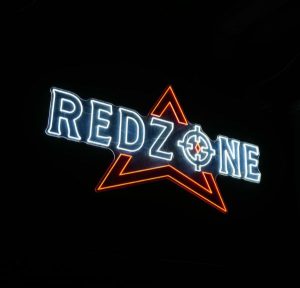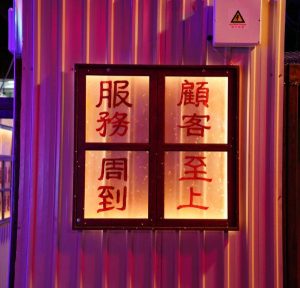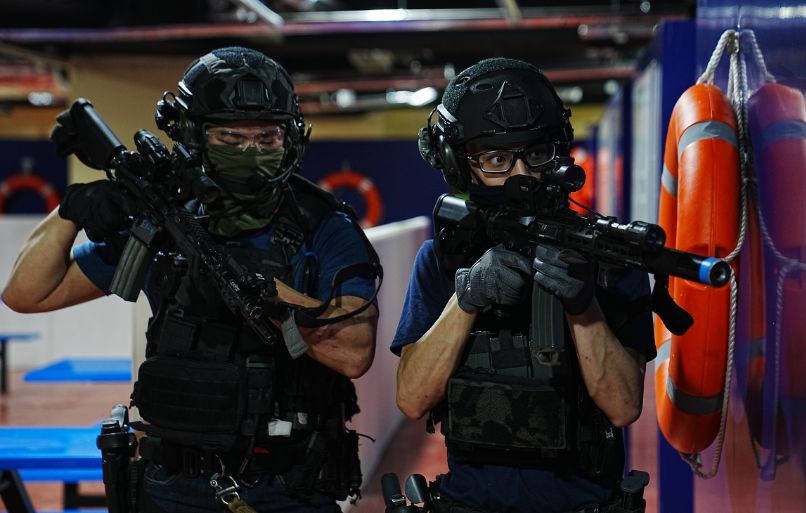
The Psychology Behind Effective Team Building in Wargames
Wargames, a blend of strategy, skill, and teamwork, have long captivated enthusiasts around the world. Yet, the heart of these games isn’t just the thrill of the battle; it’s the intricate dynamics of team building.
Here at Red Zone, we’re dedicated to encouraging team building and are constantly fascinated by the numerous positives that emerge from participants engaging in the CQB games we offer.
Here at Red Zone, we’re dedicated to encouraging team building and are constantly fascinated by the numerous positives that emerge from participants engaging in the CQB games we offer.
This post delves into the psychological underpinnings of effective team building in the world of wargames, exploring how understanding the mind can lead to victory on the battlefield.
So, if this is of interest – read on!
So, if this is of interest – read on!
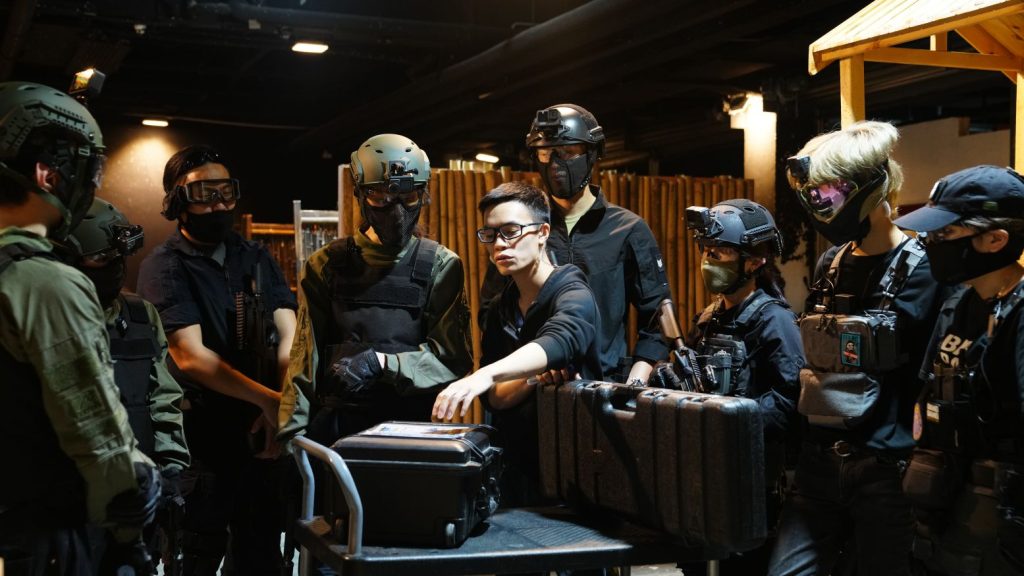
Understanding Team Dynamics in Wargames
Team dynamics in wargames that use Orbeez Guns (Gel Blasters) are more than just a group of players working together; they represent a complex interaction of personalities, skills, and strategies.
Unlike traditional team sports or business environments, CQB wargames demand a unique blend of tactical thinking, quick decision-making, and cohesive team play. Each member’s role is not just defined by their skills but also by how they contribute to the team’s overall strategy.
The dynamics are further complicated by the unpredictable nature of wargames.
Teams must respond swiftly to changing situations, necessitating a thorough awareness of each member’s strengths and shortcomings. The ability to anticipate and respond to both your team’s and the opponent’s moves is critical.
This degree of synchronization is only possible with strong team chemistry built on mutual trust and understanding.
Unlike traditional team sports or business environments, CQB wargames demand a unique blend of tactical thinking, quick decision-making, and cohesive team play. Each member’s role is not just defined by their skills but also by how they contribute to the team’s overall strategy.
The dynamics are further complicated by the unpredictable nature of wargames.
Teams must respond swiftly to changing situations, necessitating a thorough awareness of each member’s strengths and shortcomings. The ability to anticipate and respond to both your team’s and the opponent’s moves is critical.
This degree of synchronization is only possible with strong team chemistry built on mutual trust and understanding.
Psychological Foundations of Team Building
Playing wargames in Hong Kong is grounded in psychology.
Tuckman’s stages of group development—forming, storming, norming, and performing—are especially pertinent to wargaming. Team members may struggle at first with varied styles and ideas (storming), but as they learn to collaborate (norming), they become a more cohesive and successful unit (performing).
Tuckman’s stages of group development—forming, storming, norming, and performing—are especially pertinent to wargaming. Team members may struggle at first with varied styles and ideas (storming), but as they learn to collaborate (norming), they become a more cohesive and successful unit (performing).
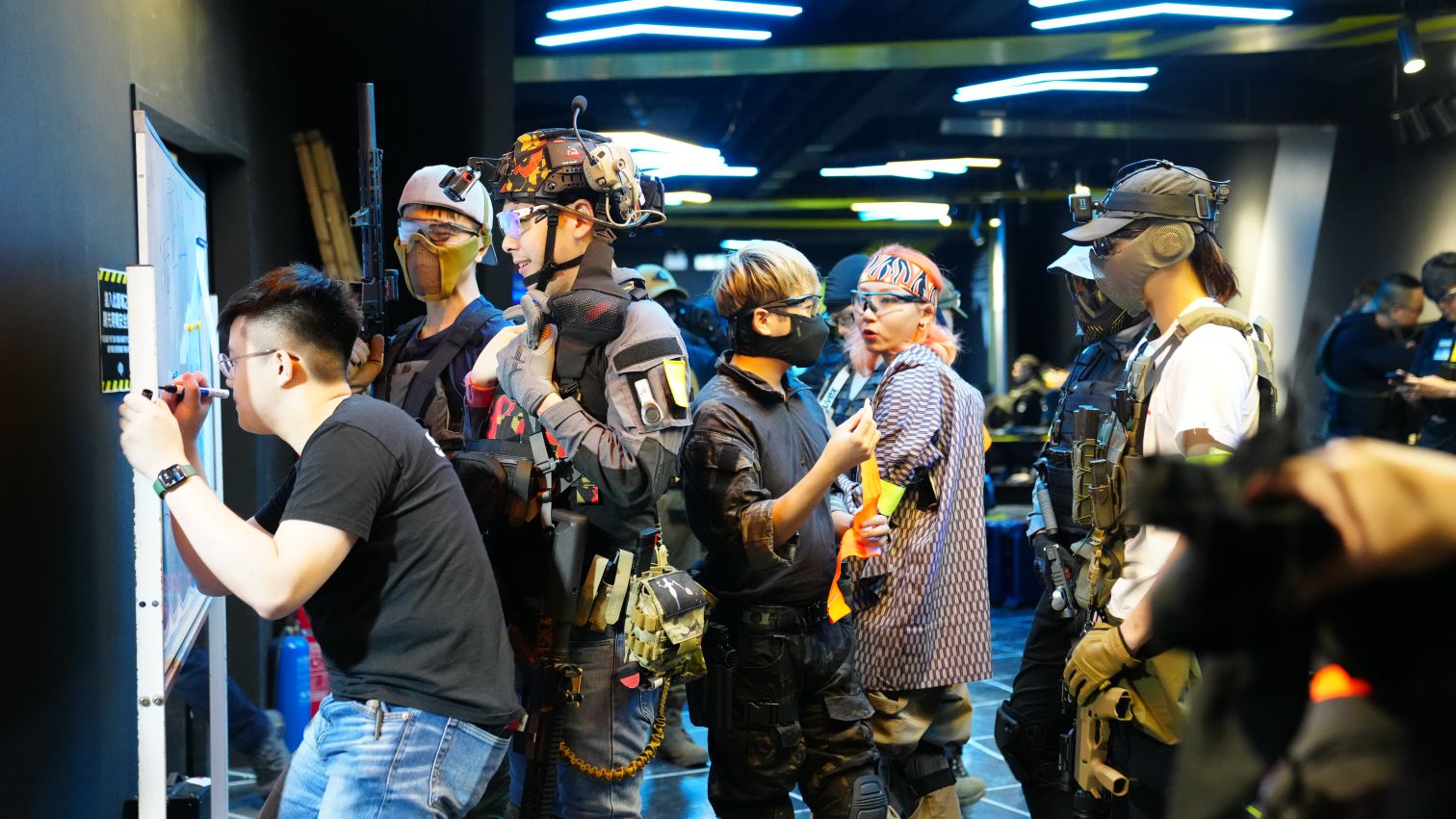
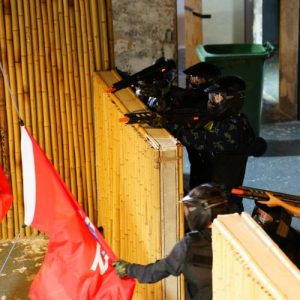
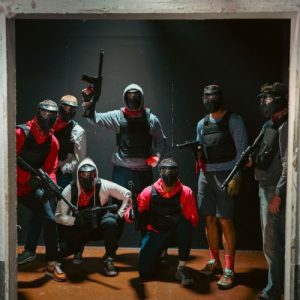
Another psychological theory that has relevance here is Maslow’s hierarchy of needs.
In a wargaming scenario, basic necessities (safety, belonging) equate to ensuring that all team members feel secure in their duties and respected by the team.
Only then can individuals advance to higher levels of the hierarchy, such as esteem and self-actualization, which are critical for peak performance in high-stress situations like wargames. Deep stuff indeed! However- the bottom line is this: there is no better Hong Kong team-building idea than wargaming!
In a wargaming scenario, basic necessities (safety, belonging) equate to ensuring that all team members feel secure in their duties and respected by the team.
Only then can individuals advance to higher levels of the hierarchy, such as esteem and self-actualization, which are critical for peak performance in high-stress situations like wargames. Deep stuff indeed! However- the bottom line is this: there is no better Hong Kong team-building idea than wargaming!


The Role of Communication in Team Success
Communication is the lifeline of effective team building in wargames.
Clear, concise communication not only ensures that strategies are executed efficiently but also helps in maintaining team morale. Miscommunications can lead to tactical errors, so it’s vital that team members understand and are understood clearly. You can see the similarities to our work-places!
The intensity of the wargame makes it so that non-verbal cues become just as crucial as spoken ones. The capacity of a member of a team to read signals and body language can make a major difference in the interaction.
Furthermore, adjusting communication styles to accommodate the various individuals of a team can improve both comprehension and productivity simultaneously. It is impossible to stress the importance of a leader’s involvement in establishing a culture of open and honest communication.
Clear, concise communication not only ensures that strategies are executed efficiently but also helps in maintaining team morale. Miscommunications can lead to tactical errors, so it’s vital that team members understand and are understood clearly. You can see the similarities to our work-places!
The intensity of the wargame makes it so that non-verbal cues become just as crucial as spoken ones. The capacity of a member of a team to read signals and body language can make a major difference in the interaction.
Furthermore, adjusting communication styles to accommodate the various individuals of a team can improve both comprehension and productivity simultaneously. It is impossible to stress the importance of a leader’s involvement in establishing a culture of open and honest communication.
Leadership and Its Impact on Teams
Leadership in wargames goes beyond directing actions; it’s about inspiring confidence and fostering a team environment where every member feels empowered. Different leadership styles – from democratic to authoritarian – can significantly impact team dynamics. The idea is to strike a balance that matches the team’s general personality and the game’s demands.
A competent wargame leader not only develops strategy, but also inspires and supports team members. They are skilled at conflict resolution and can maintain team spirit even in difficult circumstances. Their capacity to make rapid, decisive decisions while considering team input is critical to success.
A competent wargame leader not only develops strategy, but also inspires and supports team members. They are skilled at conflict resolution and can maintain team spirit even in difficult circumstances. Their capacity to make rapid, decisive decisions while considering team input is critical to success.

Building Trust and Cooperation Among Team Members
Trust and teamwork are essential for any successful gaming team. Building trust begins with creating an environment in which team members feel free to share ideas and tactics without fear of criticism.
Regular team workouts and debriefing sessions can assist teammates understand each other’s playing styles and cognitive processes, resulting in increased mutual trust.
Cooperation, on the other hand, is about prioritizing the team’s goals before individual glory. It entails knowing and accepting distinct positions within the team, as well as working collaboratively to achieve a common goal.
Teams that excel at wargames have members that complement one other’s abilities and plans. Again – ths similarities to our professional working-life are virtually identical.
Regular team workouts and debriefing sessions can assist teammates understand each other’s playing styles and cognitive processes, resulting in increased mutual trust.
Cooperation, on the other hand, is about prioritizing the team’s goals before individual glory. It entails knowing and accepting distinct positions within the team, as well as working collaboratively to achieve a common goal.
Teams that excel at wargames have members that complement one other’s abilities and plans. Again – ths similarities to our professional working-life are virtually identical.
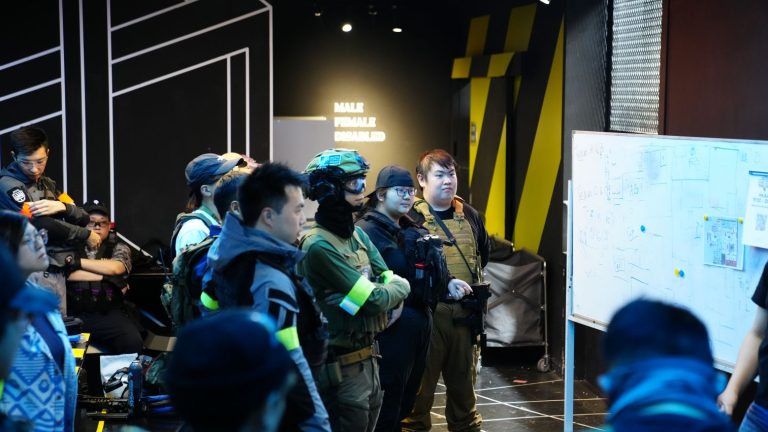
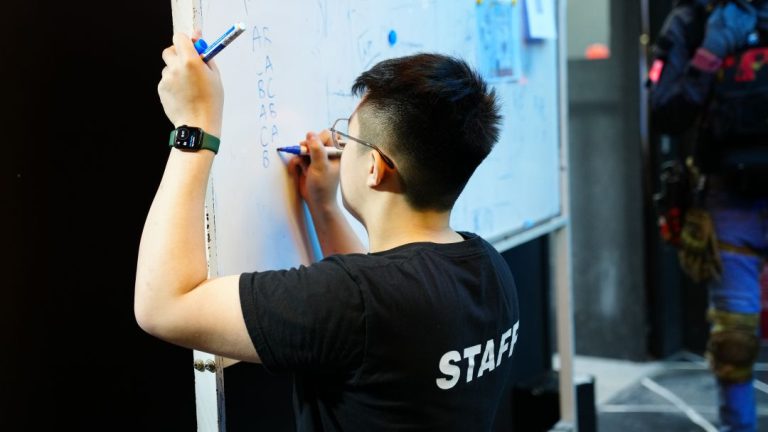
Handling Conflict and Stress in Teams
Conflict is inevitable in professional team settings, and CQB wargames are no exception.
The key to handling conflict is to address it constructively, focusing on the issue and not the individuals involved. Effective conflict resolution involves open communication, empathy, and sometimes compromise.
Stress management is equally crucial. Wargames sometimes involve high-pressure scenarios, so the ability to remain calm under duress is an important skill.
Deep breathing, maintaining a positive mindset, and focusing on the work at hand are all helpful stress management techniques.
The key to handling conflict is to address it constructively, focusing on the issue and not the individuals involved. Effective conflict resolution involves open communication, empathy, and sometimes compromise.
Stress management is equally crucial. Wargames sometimes involve high-pressure scenarios, so the ability to remain calm under duress is an important skill.
Deep breathing, maintaining a positive mindset, and focusing on the work at hand are all helpful stress management techniques.
Top 6 Benefits of Playing Wargame
If your boss needs further persuasion then here are six core team-building benefits…
- Teamwork and Cooperation: Essential in both wargames and the workplace.
- Effective Communication: Crucial for strategy execution and morale in both settings.
- Leadership: Vital in inspiring confidence and fostering team environments.
- Trust and Teamwork: Fundamental for success in both wargames and professional settings.
- Conflict Resolution: Key in managing disagreements constructively.
- Stress Management: Important in maintaining composure under pressure.
In Summary: The Almost Identical Team-Building Benefits Attained In The Work-Place
In conclusion, the similarities between team-building exercises at our wargame center and the professional workplace are strikingly clear. Both environments demand teamwork, cooperation, and effective communication. The skills honed in the strategic, high-pressure scenarios of wargames directly translate to workplace success.
Leadership, trust-building, and conflict resolution are equally pivotal in both realms, demonstrating how wargaming can be an invaluable tool for professional team development.
Ultimately, the lessons learned in the heat of wargame battles are remarkably relevant to the challenges faced in our daily professional lives. So, if you’re in the market to find a team-building idea then look no further than a CQB Wargame in Hong Kong!
Leadership, trust-building, and conflict resolution are equally pivotal in both realms, demonstrating how wargaming can be an invaluable tool for professional team development.
Ultimately, the lessons learned in the heat of wargame battles are remarkably relevant to the challenges faced in our daily professional lives. So, if you’re in the market to find a team-building idea then look no further than a CQB Wargame in Hong Kong!
